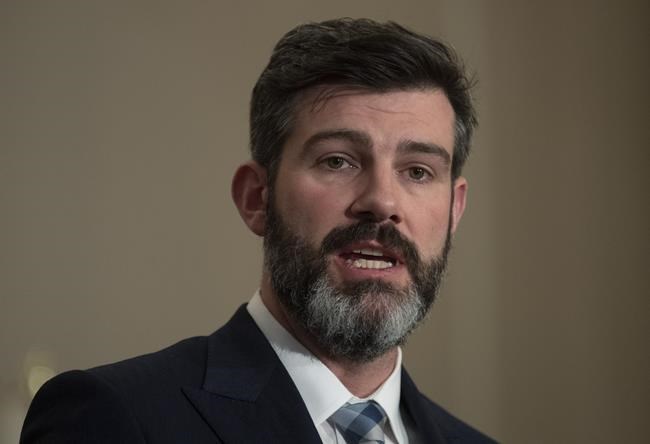OTTAWA — Canada's cities are on the brink of financial crisis due to the COVID-19 pandemic, a group of municipal leaders say — unless the federal government urgently provides billions of dollars in help.
The hole in municipal budgets could be anywhere between $10 billion and $15 billion over the next six months, depending on the severity and duration of the pandemic-related shutdown, the Federation of Canadian Municipalities says.
Funding would pay for services and fill in revenue gaps. Transit ridership and parking revenue is down as people stay home due to the pandemic, while recreation centres and arenas that would normally be bustling also remain closed.
The result has been staff layoffs to save money and spending reviews to help balance budgets because cities can't run deficits like Ottawa or the provinces. Toronto's transit agency announced Thursday temporary layoffs for about 1,200 workers over the coming weeks as part of cost-saving measures.
Adding to issues is that some municipal councils are considering, or have already approved, delays in collecting property taxes to give residents a financial break.
Absent federal help, the federation says local councils could be forced to cut spending further or approve large tax increases.
Asked about the funding request, Prime Minister Justin Trudeau noted municipalities are constitutionally governed by the provinces, but added his government would work with provinces and "directly with municipalities" on issues.
Municipal officials have been making the case for weeks about the need for financial help as they suffer mounting revenue losses, and fear more coming if shuttered businesses fail to reopen once health restrictions are slowly lifted.
Local leaders argue provincial coffers may not be able to help out much more. Forecasts from TD Economics on Thursday suggested GDP contractions and unemployment rates will be sharpest in oil-producing regions, with Alberta feeling the worst of it. Smaller provinces will "see severe contractions" but fare slightly better than Ontario and Quebec, the report said.
In response, the federal government has given money to provinces to cover health-care costs and targeted help for the oil and gas sector. The Bank of Canada has also gone on an unprecedented $50 billion provincial bond-buying program to effectively provide low-cost financing.
Edmonton Mayor Don Iveson, who chairs federation's big city mayors' caucus, said the national funding request was partly because provinces might not be in a fiscal position to help — unlike the federal government.
"They've delivered urgent aid to individuals, to business, and most recently to students, and that's very positive," Iveson told reporters on a videoconference.
"We're now at the point where the crisis in municipal finance needs to be addressed and ideally provinces will play a role, but the buck stops with the federal government."
New Democrat MP Taylor Bachrach, the party's critic for infrastructure and communities, said municipal spending cuts would "be devastating to workers and residents" but "also make the recovery more difficult." He called for a swift spending response.
Federal spending on emergency aid measures is quickly creeping towards $110 billion, not including credit help, with more details expected Friday morning when the parliamentary budget officer weighs in with new forecasts.
As of Tuesday, the government had spent $21.3 billion on the Canada Emergency Response Benefit, a $2,000-a-month benefit to workers. The figures show there have been 6.82 million unique applicants for the program.
It still has gaps in coverage, including for pregnant women who previously applied for employment insurance at the outset of the pandemic in March.
And an analysis published Thursday by the Canadian Centre for Policy Alternatives said there were 1.4 million unemployed Canadians this month who couldn't access the benefit, and 1.4 million more who will likely try to cut their hours so their monthly earnings fall below the $1,000 now needed to qualify for the CERB.
"We never expected that we'd get it perfect from day one. Indeed, we knew we wouldn't, but we couldn't let the perfect be the enemy of the good," Trudeau said in response to questions about holes in the government's aid programs.
How soon those workers can get back on the job will vary by jurisdiction as provinces and cities determine how quickly to loosen restrictions that have severely limited economic activity. The question was put repeatedly to Small Business Minister Mary Ng during an appearance before the House of Commons industry committee.
"Businesses need to reopen. They don't need handouts for 18 months. They need a plan to get back to work," said Conservative MP Michelle Rempel Garner.
Ng said the government was working very intently with businesses who say they need help with cash flow to manage through this time, "so that we can be on that road to recovery when it's safe to do."
This report by The Canadian Press was first published April 23, 2020.
Jordan Press, The Canadian Press




